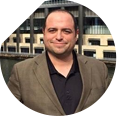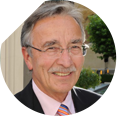Wednesday, November 17th, 10h15-11h15 |
|
Michel Dubois is a sociologist of science and technology, CNRS Senior Research Fellow. He is the current director of the Gemass Lab (Groupe d'Etude des Méthodes de l'Analyse Sociologique de la Sorbonne - CNRS - Sorbonne Université) and director of the French Sociological Review (Presses de SciencesPo). His most recent work in the field of the study of science involves the development of environmental epigenetics for the scientific study of neurodegenerative diseases, the transformations in the modes of evaluation of scientific work, the impact of the covid19 crisis on research ethics and public attitudes towards the scientific community. Michel Dubois, PhD CNRS, michel.dubois@cnrs.fr Gene editing, CRISPR-Cas9, environmental epigenetics, sociogenomics: these terms, which have been doing the rounds among the general public since the early years of the 21st century, point to new horizons of control and empowerment. “Why Your DNA Isn't Your Destiny” read a Times headline in 2010… Apparently announcing the end of the era of biological heredity inherited from the 19th century, those terms give rise to enthusiasm and disquiet turn and turn about. They are the subject of numerous forms of reappropriation, social, economic and political alike. In his contribution, Michel Dubois, sociologist of science at the CNRS, will be taking another look at the way in which the social sciences pick up on the latest genomic and post-genomic advances made by the life sciences (Dubois, Guaspare, Louvel, 2018). Returning to the study of social perceptions of science, he will be making an assessment of our current attitudes towards biotechnologies, genetic engineering and epigenetics. The hitherto unpublished results of the The French and Science 2020 survey will be presented and put into perspective in relation to the various waves of surveys available in France since the 1970s, as well as the most recent major international surveys. In discussing the main results of a series of surveys devoted to epigenetics and behavioural genetics (Dubois et al., 2019; Dubois, Guaspare, 2020; Dubois, Guaspare, Vilain, 2021), he will be taking another look at the variety of mechanisms associated with scientific communication in the field of life sciences. For example, do specific modes of circulation of scientific knowledge among the general public exist? Why does epigenetics seem so appealing? Is it possible to identify certain “knowledge claims” in public discourse and, if so, given the current state of knowledge, how accurate are they? More generally, what problems are researchers faced with when they want to communicate in “socially responsible” fashion?
| |
Keynotes
Friday, November 19th, 15h30-16h30 |
|
| |






